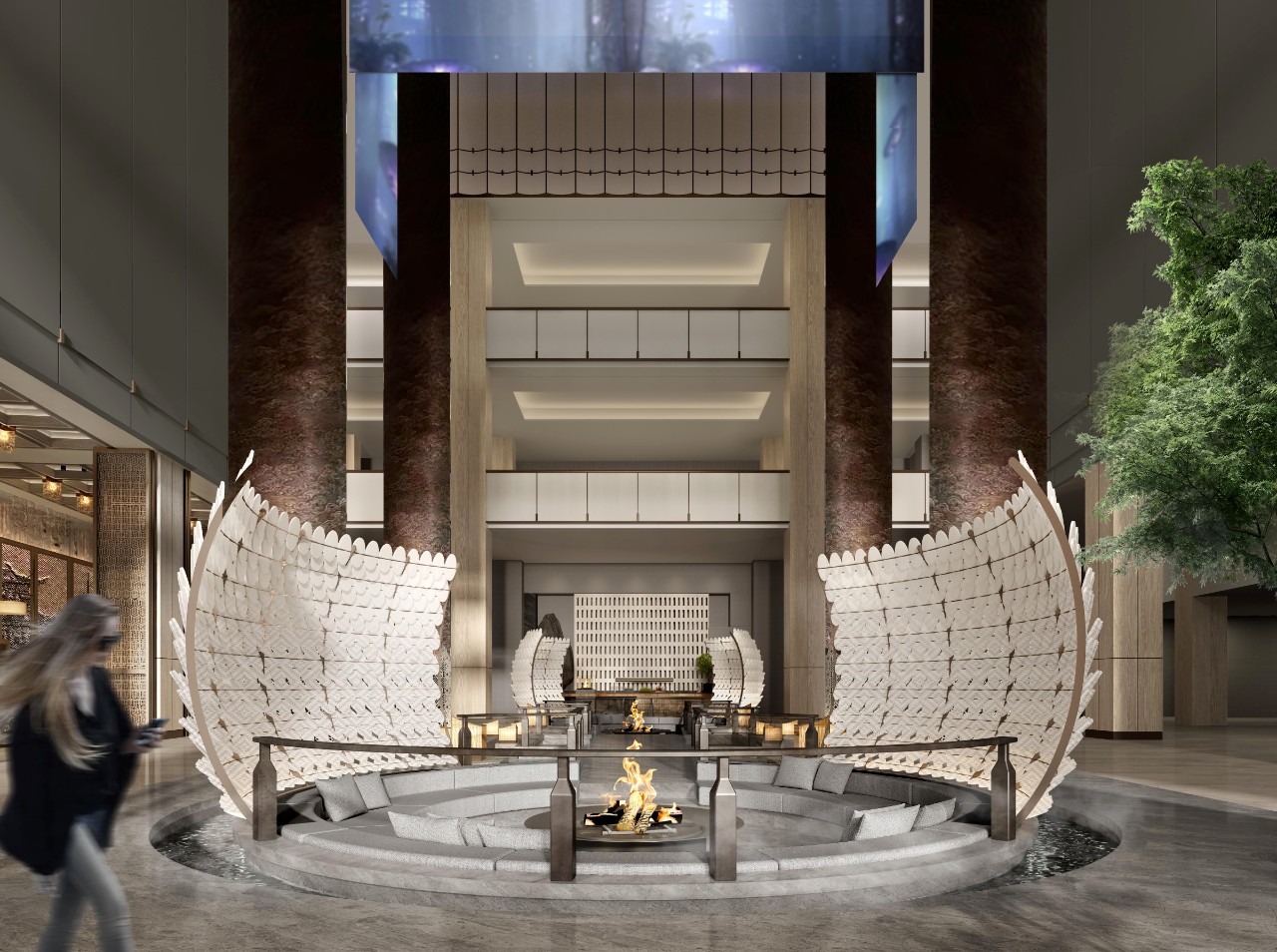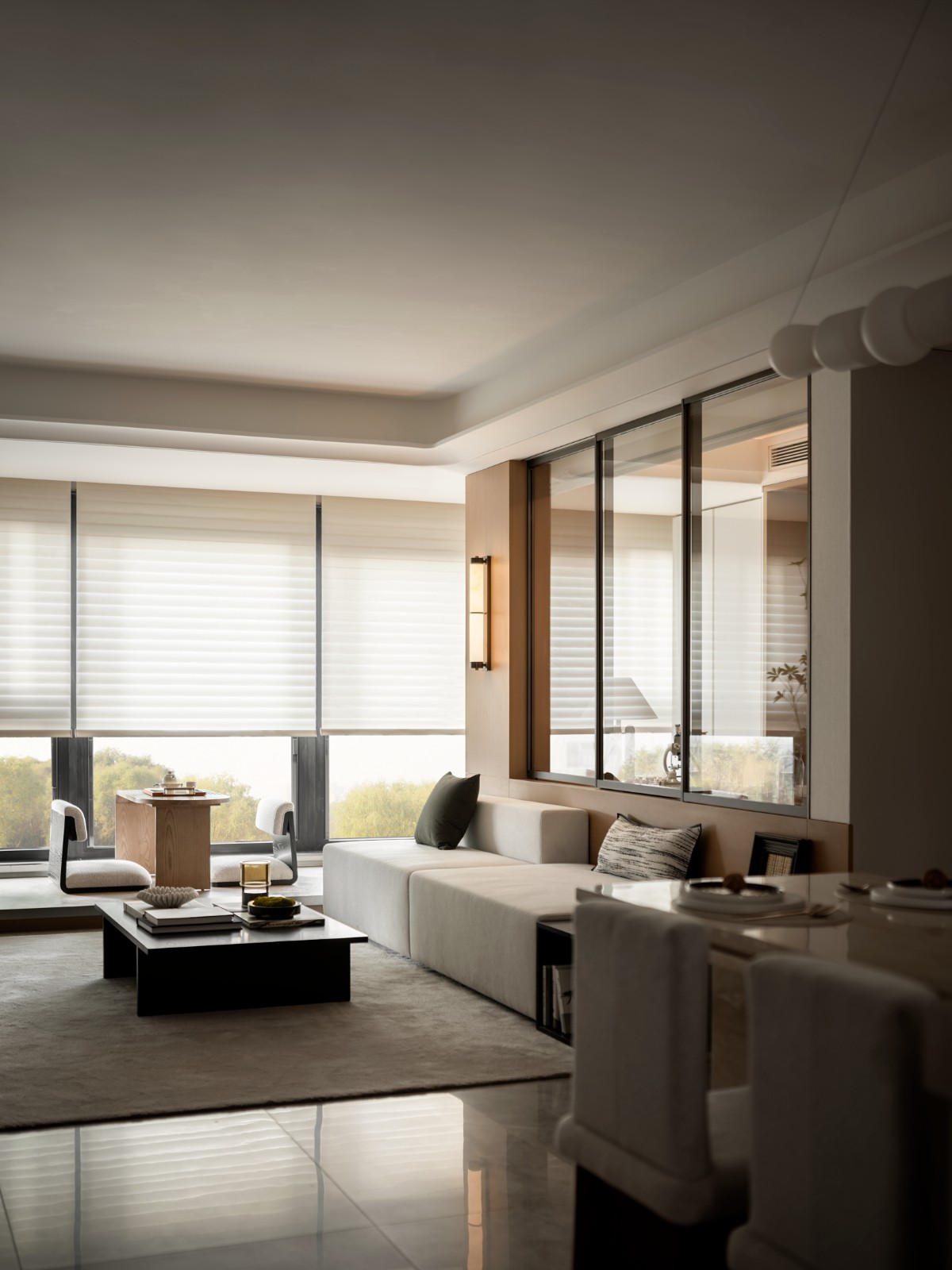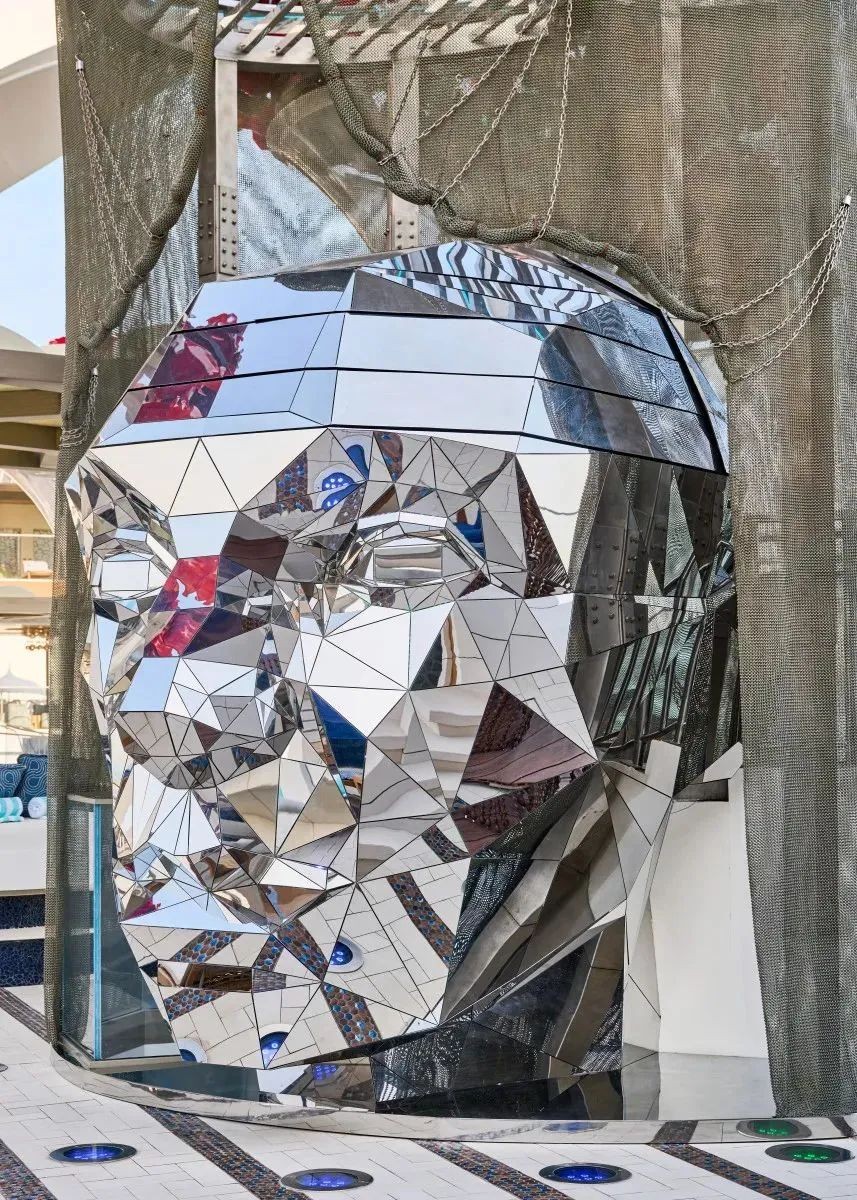hikari-yakitori-bar masquespacio
2019-09-26 15:32
Photography by Luis Beltran
LuisBeltran摄影
After the big success of Nozomi sushi bar with a waiting list of 2 months, founders José Miguel and Nuria, together with their disciple Clara, decided to continue to study their passion for Japanese food. This time they wanted to introduce a totally new concept through Hikari, Yakitori Bar, traduced literally in a skewers bar that as well as his big brother Nozomi carries on the name of a high velocity Japanese train. Differently to the previous project the interior designed by creative consultancy Masquespacio, has been inspired by the different quarters and alleys of Kabukicho, Omoide Yokocho y Hajimeya in Tokyo, where most of the of the yakitori bars are established.
在拥有2个月等待名单的Nozomi寿司酒吧获得巨大成功后,创始人何塞·米格尔和努里亚以及他们的弟子克拉拉决定继续研究他们对日本食物的热情。这一次,他们想通过Yakitor i酒吧Hikari引入一个全新的概念,这是在一家串串酒吧里引用的,他的哥哥Nozomi也继承了一辆高速日本列车的名字。与前一个项目不同的是,由创意咨询公司Masquespacio设计的内部设计受到了东京Kabukicho、Omoide Yokocho和Hajimeya不同的街区和小巷的启发,那里建立了大部分Yakitori酒吧。
“We went to one of the most authentic neighborhoods from Tokyo bringing back their noise and smell, but reinventing their visual pollution”
我们去了东京最正宗的街区之一,带回了他们的噪音和气味,但却重塑了他们的视觉污染
Starting from the façade we can immediately recognize the entrance to one of Tokyo’s tunnels, that invites us to enter to the intimate and at the same time eclectic interior, that with the dimmed light and flames coming out of the kitchen catches the visitor from the beginning till the end. Here you can recognize straight away the fusion between noble and industrial materials, classic and contemporary, always through an own vision that clearly represents the identity from Nozomi’s company.
从正面开始,我们可以立即认出东京一条隧道的入口,它邀请我们进入亲密的,同时又兼容并蓄的内部,在厨房发出暗淡的光线和火焰时,从一开始到最后都会吸引游客。在这里,你可以立即认识到高贵和工业材料之间的融合,古典和现代,始终通过自己的愿景,清楚地代表了诺佐米公司的身份。
“The reinterpretation of the Kabukicho, Omoide Yokocho y Hajimeya alleys is done through a monochrome color scheme represented by grey and rusty finishes, as wall as a touch of wood that adds warmth to the overall concept”
“对Kabukicho,OmoideYokochoyHajimeya巷道的重新解释是通过以灰色和生锈的饰面为代表的单色方案进行的,作为一种墙壁,为整体概念增加了温暖的木材。”
The big tunnel we are passing through takes us to the second part of the venue, while we are followed by the flames from the kitchen.
我们正在穿过的大隧道把我们带到会场的第二部分,而我们被厨房的火焰所跟随。
“During our walk till the end of the tunnel we can see how wood is mixed with concrete and metal, while the classic lanterns cast a shadow of typical alley light in the corridors”
“在我们走到隧道尽头时,我们可以看到木头是如何与混凝土和金属混合的,而传统的灯笼在走廊里投下了典型的巷子光线的影子。”
Once turned right we can see a square without exit full of lighted boards that hang from the ceiling, a small food stand and a reinvention of the commerce of the famous district from the Japanese capital, here used like a set of small houses that settle the visitors of the restaurant.
一旦右转,我们就可以看到一个正方形,没有完全从天花板上悬挂下来的照明板,一个小的食品站和一个来自日本首都的著名区的商业的再发明,这里就像一组小房子,这些小房子能解决餐馆的游客。
From the metal, cement and wood interior of the small houses, below a dimmed light, the visitor enjoys an overwhelming view on the central place full of contrasts like if they wear sitting in one of the most authentic streets of the Nippon city.
从这些小房子的金属、水泥和木材内部,在昏暗的灯光下,游客在市中心享受着压倒性的景观,就像他们坐在日本城市最正宗的街道上一样。
“The light sculptures hanging from the ceiling and the walls are a metaphor of the neon signs that create a strong visual pollution on the bustling streets of Tokyo”
“挂在天花板和墙壁上的灯光雕塑是在东京繁华的街道上产生强烈视觉污染的霓虹灯招牌的象征。”
In summary, if Nozomi took us to Kyoto, this time the visitor of Hikari will feel like if they were visiting one of the most authentic streets of Tokyo.
总之,如果Nozomi带我们到京都,这次访问Hikari的游客就会感觉到他们正在访问东京最地道的街道之一。
 举报
举报
别默默的看了,快登录帮我评论一下吧!:)
注册
登录
更多评论
相关文章
-

描边风设计中,最容易犯的8种问题分析
2018年走过了四分之一,LOGO设计趋势也清晰了LOGO设计
-

描边风设计中,最容易犯的8种问题分析
2018年走过了四分之一,LOGO设计趋势也清晰了LOGO设计
-

描边风设计中,最容易犯的8种问题分析
2018年走过了四分之一,LOGO设计趋势也清晰了LOGO设计






















































